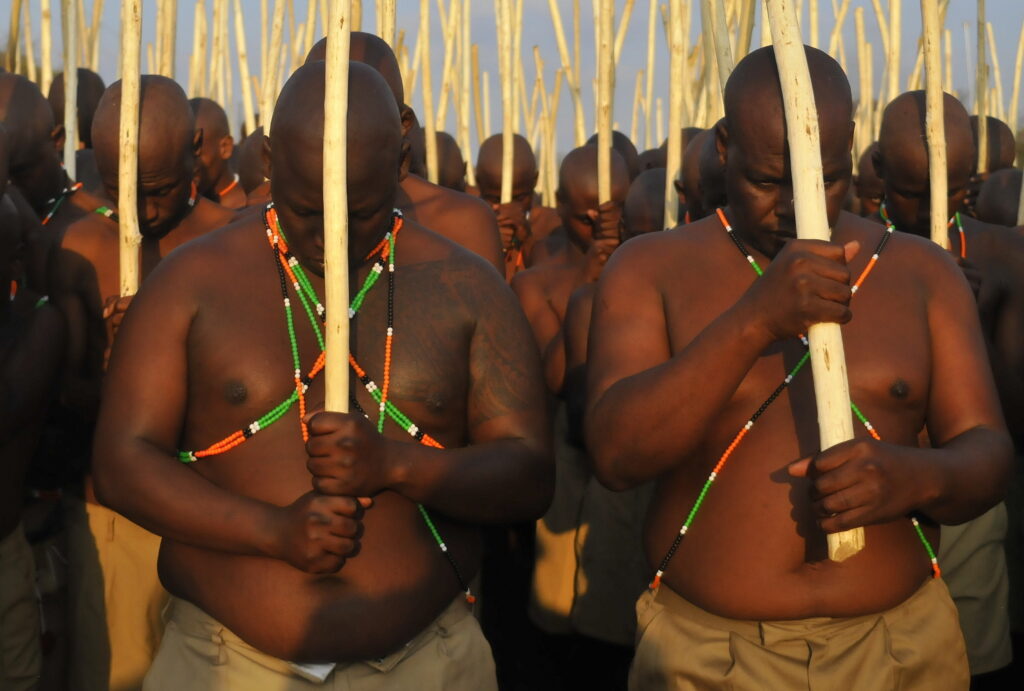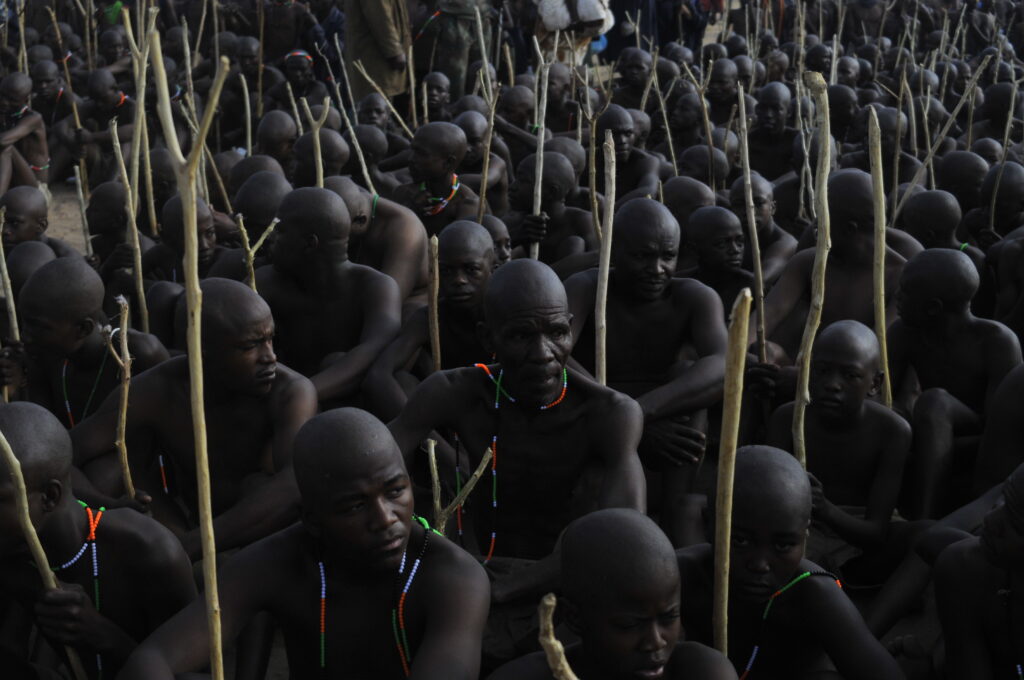As dawn broke on 19 July communities around Limpopo’s rural villages burst into the streets in song and dance – to welcome more than 25,000 young men and women who had spent a month away undergoing the sacred koma rite of passage.
LUCAS LEDWABA captured the festivities in Moletjie, near Polokwane, where Kgoshi Kgabo Moloto welcomed back hundreds of initiates.
Young and old blew horns, pummeled drums and enamel plates with their hands, ululated and sang songs of celebration as the initiates, dialoga, marched away from the flames of the moroto, their base for the duration of the koma, to be united with their families.
Families hosted feasts after sacrificing goats, sheep and in some instances cattle as part of the festivities. Beer and spirits flowed freely and young men who had undergone the rite previously danced and sang in the streets, on the back of lorries and bakkies, to welcome the newly initiated.
On completion of the koma rites, they are expected to behave as responsible members of the community, show respect to both young and old, become responsible citizens and help preserve sacred ways of their clans, tribes and communities.
The provincial Department of Co-operative Governance, Human Settlements and Traditional Affairs (Coghsta) said it received 569 applications to host both the winter and summer initiation
schools.
Out of these, 530 koma applications were approved by the Provincial Initiation Coordinating Committee. These comprised 322 applications for male and 208 for female koma licences, respectively. The PICC disapproved 40 applications that were found to have failed to comply with certain sections of the Customary Initiation Act 2 of 2021.
This year number of initiates who took part in koma surpassed more than 25,000, showing ever-sustained popularity and appreciation of the ages-old rite of passage. In other parts of the country, the rite continues to be plagued by a high number of deaths.
Limpopo has however, maintained high safety standards and continues to be a model for safe practice in the execution of the koma rites. During this initiation season, two initiates, a 12-year-old boy who sustained injuries in a fire during koma rites and a 19-year-old man who suffered from epileptic complications, died.
Limpopo Premier Dr Phophi Ramathuba noted that while the majority of schools conducted their activities with discipline, cultural integrity, and adherence to safety protocols, the province
deeply regrets the tragic loss of the two initiates.
“We mourn the loss of two young lives and extend our deepest condolences to their
families. One death is one too many. As government, together with our traditional
leaders, we remain resolute in our mission to ensure that no life is lost during initiation.
We will continue to strengthen health screening protocols and intensify monitoring
mechanisms to prevent such tragedies in the future,” said Ramathuba. – news@mukurukuru.co.za


An elder in elaborate headgear leads the initiates to mošate. Photo. Lucas Ledwaba 
Beads and red ochre form an integral part of the costume. Photo. Lucas Ledwaba 
Relatives dance to welcome loved ones. Photo. Lucas Ledwaba 
A young man gets made up with red ochre for the festivities. Photo. Lucas Ledwaba 
Jubilation as a mother welcomes her initiate son back home. Photo. Lucas Ledwaba 
Ngoako Molele and a friend admire the poster prepared for his return by family. Photo. Lucas Ledwaba 
Kgoši Kgabo Moloto gives the young men and women advice including to stay away from drugs. Photo. Lucas Ledwaba 
The arrival of the dialoga triggers emotive reaction Photo. Lucas Ledwaba 
Village residents poured out into streets in celebration. Photo. Lucas Ledwaba 
Bakkies carried bands of young men from one celebration to the next. Photo. Lucas Ledwaba 
Girl initiates bow as they are welcomed to mošate to pay homage to the Moloto royals. Photo. Lucas Ledwaba 
Women and girls lead the procession to mošate with men following behind. Photo. Lucas Ledwaba

